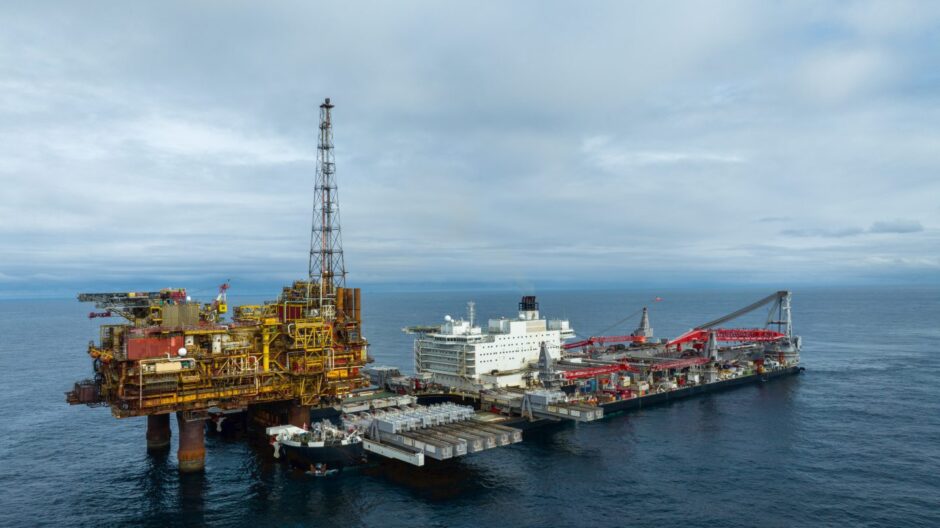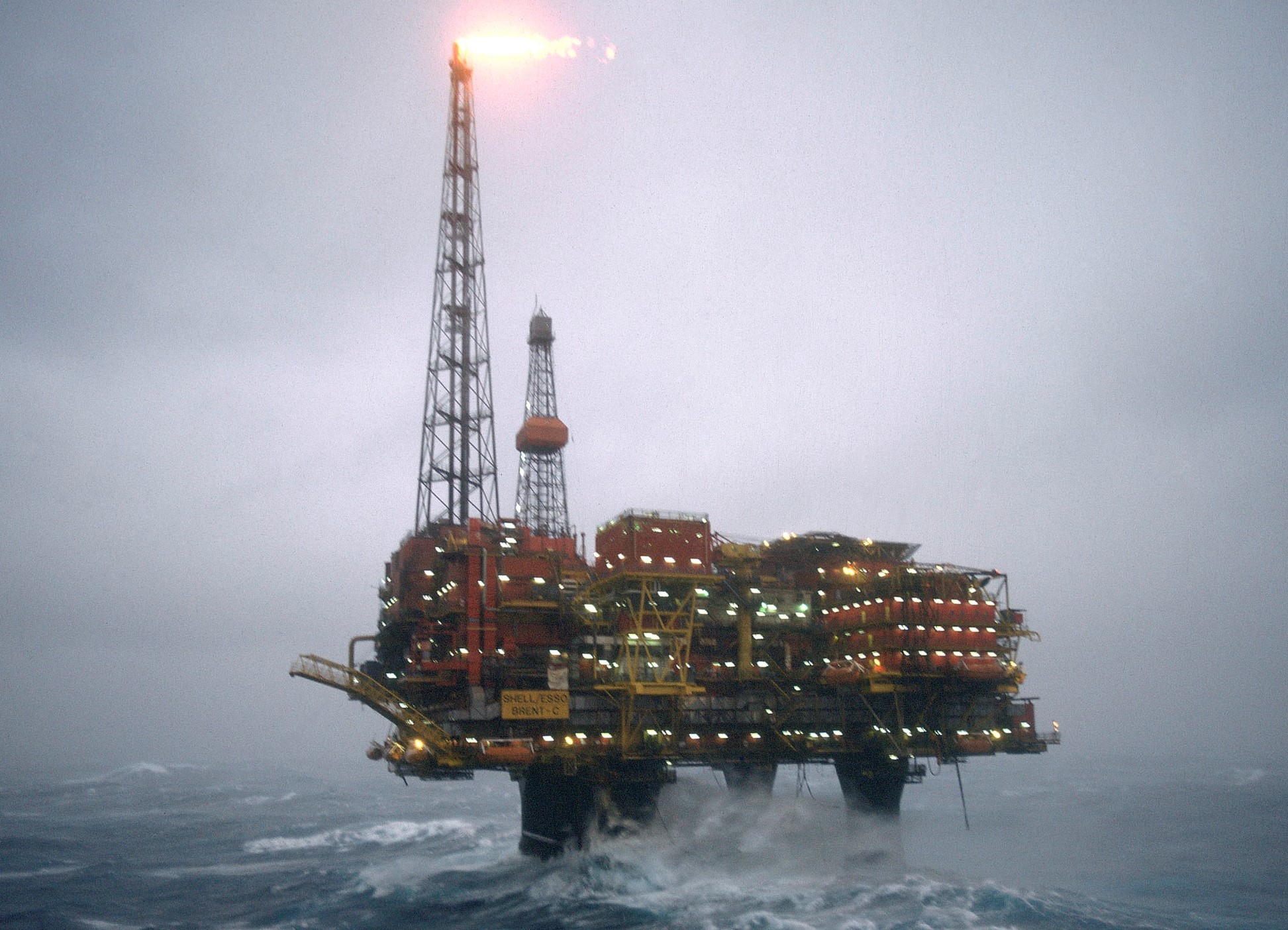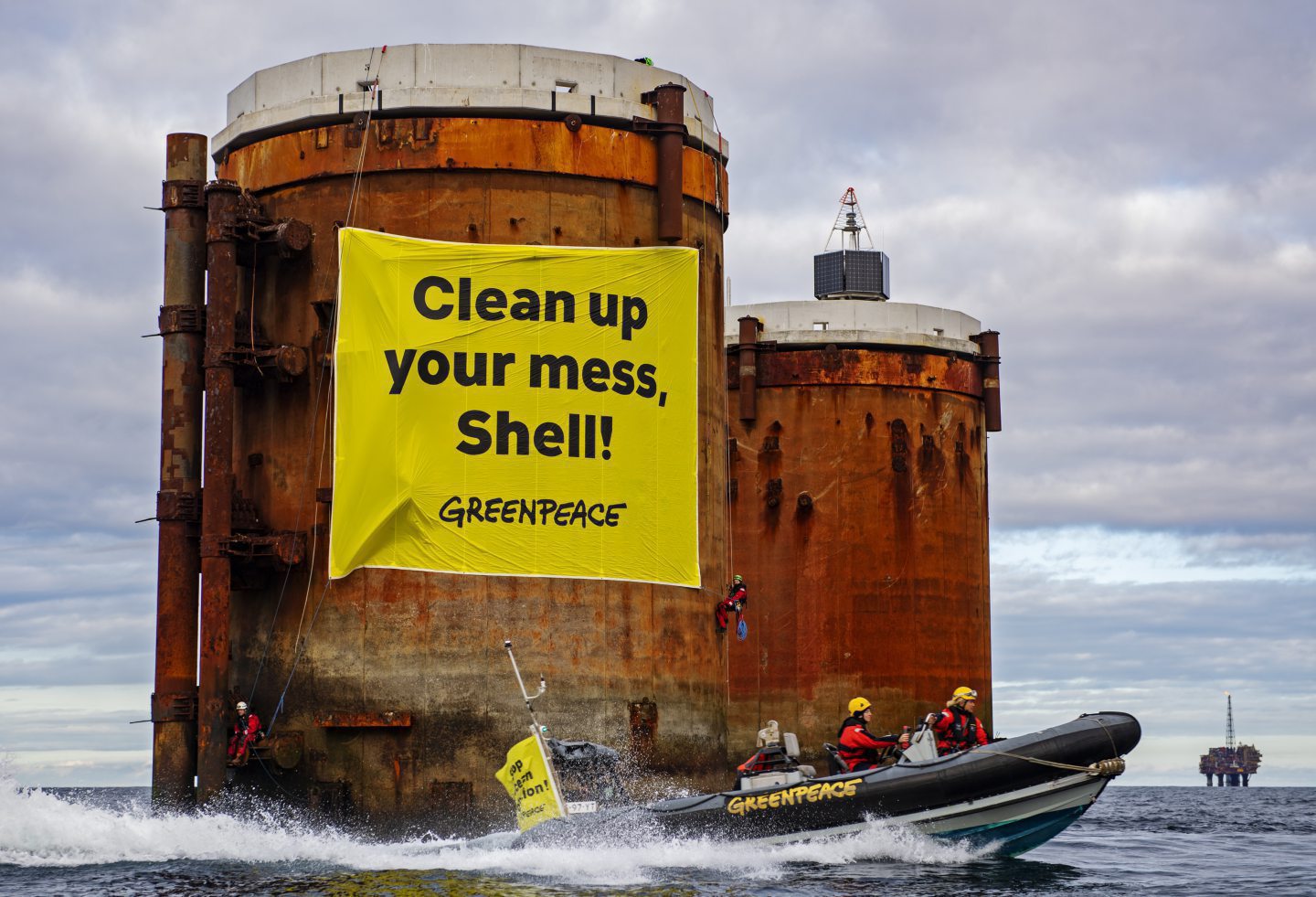
Shell’s Brent Charlie platform has been removed from the North Sea in the end of an era for the iconic oil field, which gave its name to the Brent crude benchmark.
A spokesperson for Shell told Energy Voice that the lift took place on 9 July, with the operation carried out by the Allseas heavy lift vessel Pioneering Spirit.
Allseas said the “remarkable project”, spanning more than a decade of planning and preparation, was the “heaviest offshore lift ever performed”.
The removal of the Charlie topsides means all four Brent platforms have now been removed from the North Sea, with the Pioneering Spirit undertaking each lift.
First installed in June 1978, Brent Charlie ceased production in 2021 after more than 40 years of operation.
Weighing more than 30,000 tonnes, the Pioneering Spirit will now transfer the Charlie topsides to the Allseas Iron Lady cargo barge for transport to the Able Seaton Port near Hartlepool.
Shell said its latest estimate is the topside will arrive at the port early next week, subject to weather conditions, with more than 97% of the materials expected to be recycled.
Brent Charlie now becomes the fourth and final platform in the field to be removed, following Brent Delta in 2017. Brent Bravo in 2019, and Brent Alpha in 2020.
Since the field began producing in 1976, Shell estimates Brent production contributed more than £20bn in tax revenues to the UK government.
Earlier this year, Shell disclosed nearly $750m (£584m) of tax rebates received from the UK government for decommissioning Brent.
Brent legs decommissioning
With all the Brent platform topsides now removed, attention is likely to return to Shell’s plans for decommissioning the remaining Brent field legs.
Shell’s proposal to leave the platform legs in place have proven highly controversial, with environmentalists concerned about the impact of the “hazardous waste”.
Greenpeace UK staged numerous protests at the Brent field in 2019 and 2020, accusing Shell of seeking to “abandon” 11,000 tonnes of oil on the seabed.
The oil giant later won a court order preventing Greenpeace and other environmentalists from boarding unmanned North Sea installations.
The plans have also met opposition from other countries within OSPAR – a pan-European convention requiring removal of oil and gas structures from the seabed.
Shell is still awaiting approval for its Brent Field decommissioning plan after submitting its proposals to UK regulator OPRED.
Earlier this year a Shell spokesperson told Energy Voice the company expects to receive approval for its plans in 2024, potentially putting an end to long-running uncertainty over what will happen to the Eiffel Tower-sized structures.
Shell has long argued the risks of removal, including safety and other factors such as environmental and societal impact, outweigh the benefits even when cost is not considered.
Recommended for you


 © Shell
© Shell © Supplied by Greenpeace
© Supplied by Greenpeace